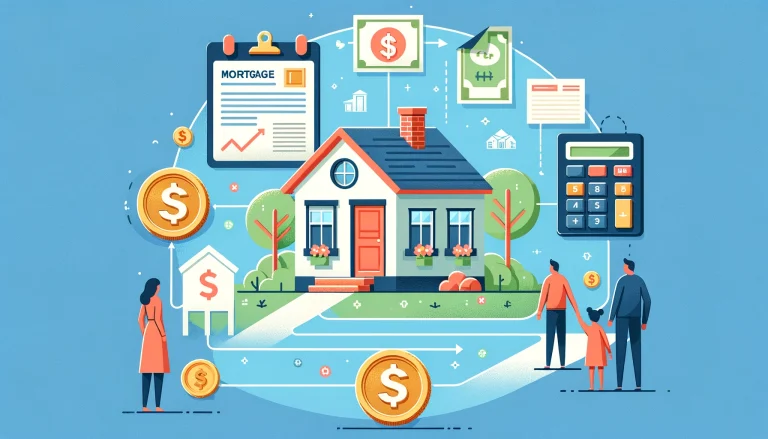Among the many debt strategies available, cash-out refinancing may finally help with your personal finances. This is a method exclusive for homeowners since it requires a mortgage. If you have a home, you may cash-out refinance to finally relieve your debt burdens. Depending on your financial situation, this may better suit your needs compared to other options.
What is Cash-Out Refinance?
Cash-out refinancing is a home equity line of options to receive funds. It depends on your home’s current value and the amount you owe on it called home equity. Using this, you may cash-out refinance a part of that equity to cover your existing mortgage and extra funds. Specifically, you may borrow at least 80% of the equity in your home for refinancing.
As a homeowner, this is an option that may help you with debt repayments. In fact, it’s one of the most common reasons why people refinance in the first place. It’s also ideal for funding home improvements or buying other properties. Additionally, some even use it to pay for their education or provide funds for emergencies or other difficult situations.
How Does Cash-Out Refinance Work?

It’s one of the debt strategies that involves taking out a loan larger than your mortgage. You may cash-out refinance to pay that off, and then you may allocate the remaining amount for various purposes.
Let’s say you have a $100,000 mortgage and you need $50,000. You may cash out $150,000 to pay off the mortgage and get the $50,000 left afterward.
Cash-Out Refinance Pros and Cons
As with all debt strategies, cash-out refi hosts a range of benefits and risks. Remember to find one that suits your financial goals, not just the most popular choice. Assess the advantages and see if they outweigh the disadvantages for your financial situation.
Keep looking for other ways to pay off your debts completely, so you may finally become debt-free!
Cash-Out Refinance Benefits
The most appealing benefit of cash-out refinancing is its unrestricted use. You may designate funds from it for any purpose, unlike other loan options. It may even improve your credit score If you use it to pay your debts off. Since your credit rating relies on your credit history, it may improve thru cash-out refinancing funds.
Furthermore, it may become more beneficial depending on economic conditions. Depending on various economic factors, you may receive better interest rates for cash-out refi. Also, refinancing your home equity may even be written off as tax-deductible. However, the caveat is that the funds must be used to increase your home’s value via home renovation.
Cash-Out Refinance Risks

Cash-out refinancing isn’t a perfect solution as it brings potential problems. The first you will encounter is the long application process. Anticipate a long wait time for the vetting process. Then, you must prepare for huge closing fees before being granted a cash-out.
Moreover, cash-out refi saddles you with a potentially worse mortgage, unlike home equity loans. Depending on your lender, you may get terms worse than those in your existing mortgage. This is why you should read the loan terms and conditions beforehand. Find all options and lenders available to get better deals.
Worse, you risk foreclosing your home with cash-out refinancing. You will lose your home if you fail to complete monthly payments on time. The Federal Deposit Insurance Corporation (FDIC) said roughly 250,000 families enter foreclosure every year. If you aren’t careful, you might count as one of them, so decide wisely.
More importantly, it’s a short-term solution to your long-term financial problems. You may cash-out refinance to get rid of debts, but it can’t solve your underlying issues with money. Check other debt strategies and home loans that may help. You may also consult a credit counselor to get professional guidance in personal finance.
Other Alternatives
As mentioned earlier, there are other home loans available aside from cash-out refinance. Other options exclusive to homeowners are home equity loans and home equity lines of credit (HELOC).
On the other hand, there are other debt strategies that may help without your home equity. Carefully assess them so you can find the best one for your financial situation.
Home Equity Alternatives

Home equity loans are also options similar to cash-out refi. While refinancing replaces your current mortgage, home equity loans give you a separate one. Moreover, home equity loans may have lower closing fees, and lenders may even absorb some of it. Refinancing is also recommended if you are looking for a fixed interest rate.
If you’re looking for smaller loan amounts, home equity lines of credit (HELOC) is a viable option. It’s also better for multiple, frequent expenditures and faster to apply for. It even has many variable and fixed interest rate options you may choose from. However, keep your spending in check to keep your HELOC balances from ballooning excessively.
Other Debt Strategies
There are other methods you may employ to reduce your debts. Aside from cash-out refinance, there is also debt consolidation, settlement, and credit counseling. There are even do-it-yourself alternatives that may work with sheer discipline and determination. Still, the best way to manage debt is to have good money habits.
You may combine all your debts into one and pay them off at once using debt consolidation loans. These replace all your balances with one that has lower interest rates. It’s usually used for paying off credit card debts, but its terms depend on your credit rating. In fact, lenders may grant you the highest interest rates if you have poor credit.
Another debt strategy is debt settlement, a process where a company negotiates with lenders to reduce their client’s debts. This is reserved for those lacking credit and other options, as it damages your credit significantly. Also, there is no guarantee of success, since lenders may refuse to grant settlement.

Alternatively, you may request a credit counseling company for help. They will assign a counselor to assess your finances and formulate the best debt management plan. These companies even provide lessons and courses regarding money management. However, they may impose certain restrictions on spending, and may ultimately fail as well.
If you are determined enough, you may follow the debt snowball and debt avalanche methods. Unlike other debt strategies like cash-out refinance, you must do them yourself. They both involve paying balances one-by-one and minimum payments for the others. Debt snowball starts with the smallest debts, while the avalanche method prioritizes the largest.
Without a doubt, the best debt strategies won’t match the effectiveness of sound money management. Spending frugally and saving regularly ensures you won’t need to borrow for emergencies. Good money habits may even remove the need to consider cash-out refinance and other debt reduction methods. Use these to improve your finances, but have good money habits to keep them that way.












